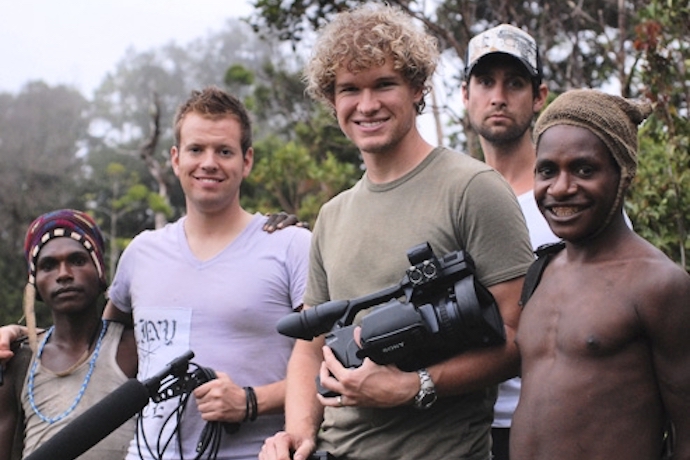Brazilian President Jair Bolsonaro and U.S. President Donald Trump have a lot in common. Neither man has much respect for the rule of law. Bolsonaro enjoys buffoonishly attacking the press as much as Trump. Both have spread misinformation about the seriousness of COVID-19, thereby worsening the coronavirus crisis in both Brazil and the United States. (Although they’re evidently too cowardly to treat Trump the same way, Facebook, Twitter, and Instagram have been known to remove especially egregious posts by Bolsonaro.) Finally, Bolsonaro, like Trump, is backed primarily by right-wing Christians, many of them charismatics of the sort represented by Trump’s spiritual adviser Paula White.
Just like Trump, Bolsonaro has appointed many such fundamentalists to important positions in his government. These appointments include placing evangelical former missionary Ricardo Lopes Dias at the head of the National Indigenous Foundation (FUNAI), Brazil’s governmental agency charged with overseeing the interests of Indigenous populations. In an attempt to quell controversy over his appointment, Dias has said, “I don’t see this as a mission or an opportunity to find new converts.” And yet American missionaries smell an opportunity.
Representatives of the missionary organization Ethnos360, until recently known as New Tribes Mission, “arrived in the Deni Indigenous Territory in Acre state in late February” and acquired a helicopter for the purpose of making contact with uncontacted tribes, according to reporting by Sue Branford for Yes! Magazine. Headed by Larry M. Brown and a member of the Forum of Bible Agencies International (along with better known organizations like the Jesus Film Project and Wycliffe Global Alliance), Ethnos360 focuses on converting “unreached groups.” It also happens to be precisely the organization with which Dias was an active missionary from 1997-2007.
The activities of groups like Ethnos360 represent a direct ethnocidal and genocidal threat to uncontacted Indigenous peoples. Conversion efforts can destroy the cultures of Indigenous peoples even if their populations are not physically decimated, and isolated peoples are also highly susceptible to diseases to which missionaries have immunity even in the best of times. To carry out missionary efforts to contact such peoples now is all the more reprehensible given that the coronavirus pandemic continues to rage in Brazil.
To be sure, Ethnos360’s drive to reach uncontacted peoples contravenes standing FUNAI policy. It’s also certainly a violation of international law, and it arguably falls afoul of the 1988 Brazilian Constitution itself. Unfortunately, it seems unlikely that Dias will move against his former organization. And as for Bolsonaro, he once casually remarked, with truly stunning bigotry, “It’s a shame that the Brazilian cavalry wasn’t as efficient as the Americans, who exterminated their Indians.” He may well allow uncontacted groups to be wiped out by missionary zealots.
The presence of the coronavirus pandemic lurking in the background of Ethnos360’s current initiatives invites comparison to the ways in which right-wing, mostly white evangelicals here in the United States are defying public health measures and continuing to hold in-person church services, even though churches have played a well-known role in the spread of COVID-19. Interestingly, some Brazilian churches are being similarly defiant of quarantine measures, with Brazilian pastors repeating arguments used elsewhere to the effect that God supposedly won’t allow the faithful to become sick in church.
Perhaps if the American public had a better understanding of the conservative, mostly white evangelical subculture from which radical missionary initiatives like Ethnos360’s spring, American readers would not be surprised by these churches behaving badly. I grew up in this subculture, raised on romantic visions of risking life and limb to spread the gospel of Jesus Christ to the entire world. In fact, I participated in two short-term youth mission trips to Russia in 1999 and 2000, a topic I finally wrote about in my contribution to my and Lauren O’Neal’s essay anthology Empty the Pews: Stories of Leaving the Church. Through those experiences and in our community in general, I had numerous opportunities to observe career missionaries.
One talking point that commonly arises in evangelical subculture is that “there is no safer place to be than in the center of God’s will.” If God needs you not to have coronavirus, in other words, you won’t get it; and why would God want people to get coronavirus in church after all? Following the same principle, if God wants you to preach to uncontacted peoples, God will make a way. You don’t need to worry about diseases; if the people you’re trying to convert die, that will turn out to have been God’s will.
Of course, God might want you to become a “martyr”—for the greater good, somehow—and that would be okay too, and maybe more than okay. To some people, in fact, the notion of “martyrdom,” sold to evangelical children with stories about Jim and Elizabeth Elliot and Nate Saint, is downright thrilling. The recent case of John Allen Chau neatly illustrates the path of radicalization. For people who convince themselves they’re working to fulfill a divine mandate, the ends can easily come to justify the means. And there’s little that can temper their zeal.
There’s a misconception going around today that most or all initiatives evangelicals undertake that affect other groups are aimed at bringing about the Rapture, an event in which Jesus will supposedly appear in the sky and take believers up to heaven, leaving those on earth to suffer apocalyptic horrors. Rapture belief is not universal among evangelicals, however, and it is certainly not the sole motivator of their social and political efforts.
But Rapture belief is a key driver of both evangelical support for (the most right-wing authoritarian version of) Israel and attempts to missionize uncontacted peoples. Ethnos360’s website makes this quite clear, as it includes “pretribulational rapture of the church” in its statement of faith and refers to a need to “finish the task” of reaching all peoples with the gospel. This mandate has driven a certain type of Christian missionary for centuries, often leaving a brutal impact in its wake. We can only hope that public awareness and pressure will prevent Ethnos360 from causing another tragedy in the Amazon Basin.





